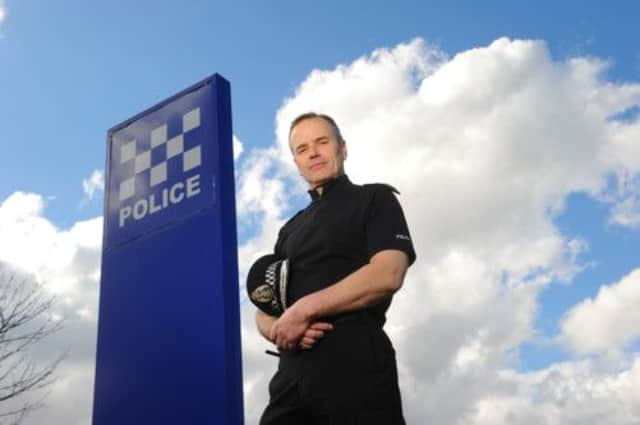Backing for roll-out of police body cameras


House gave his backing to the devices, which have been trialled in Aberdeen and Paisley, in the wake of the “plebgate” row at Westminster in which officers accused Andrew Mitchell MP of using the word “pleb” in a confrontation at Downing Street.
Police south of the Border are considering greater use of cameras as a result, and House told Scotland on Sunday a roll-out was likely in Scotland.
Advertisement
Hide AdAdvertisement
Hide AdHe said: “We would be keen to explore expanding it quite markedly; it’s a win-win. Yes we need to look at protocols, but I think we will find we already have them. The general view in Aberdeen is pretty positive.
“We will only have uniform cops wearing it and we will tell people when we’re videoing.”
He described having all uniformed officers across Scotland wearing cameras as the “ultimate potential”.
Body cameras are increasingly used by police forces around the world and have been welcomed by officers and civil rights advocates for bringing greater transparency.
However, concerns have been raised over whether they will put victims and witnesses off coming forward, particularly in rape or domestic abuse cases, or where victim intimidation may be a factor.
Lily Greenan, manager of Scottish Women’s Aid, said: “I can see some benefit in evidence gathering, but I think some of the human rights implications need to be looked at really closely.”
Chuck Wexler, executive director of the Police Executive Research Forum, based in Washington DC, is a leading authority on US policing who spoke at the International Policing Conference in Edinburgh last week.
Wexler said: “I do think body cameras are part of the future. It raises enormous questions about what’s recorded, when is something recorded, how do we protect victims who don’t want to be recorded, how do you know what impact it will have on your relationship with the community.
Advertisement
Hide AdAdvertisement
Hide Ad“If police are not going to record everything, how do we define the circumstances where they turn it on and off?”
House said if footage was not needed for a prosecution or an ongoing case it could be deleted within days.
Paddy Tomkins, a former Lothian and Borders chief constable, who now works as a strategic adviser, said private companies could also have a role.
“It makes sense to have a dialogue with industry,” he said. “We need to make sure they are developing products that give us value for money.”
An evaluation report on the pilot schemes in Aberdeen and Paisley in 2011 found evidence that the cameras reduced crime, reassured the public and cut attacks on police. They also led to an increase in cases resolved before going to court, easing pressure on the justice system.
Set-up costs were £60,000 for the two pilots, with £1,000-a-year extra required for repairs and maintenance. Police are currently looking to save £139 million over the next two years and £1.1 billion by 2026, but police believe cameras could prove good value for money.
The report said: “It is clear that the use of BWV [body-worn video] has made a positive impact in the pilot areas. Although the cost estimates have to be treated with considerable caution, they would suggest that the initial costs are likely to be offset over a relatively short period of time by savings in the court system and in the wider social and economic cost of crime.”
A Scottish Government spokeswoman said: “The introduction of body camera technology is a decision for Police Scotland. We will view the outcome of any consultation with interest.”